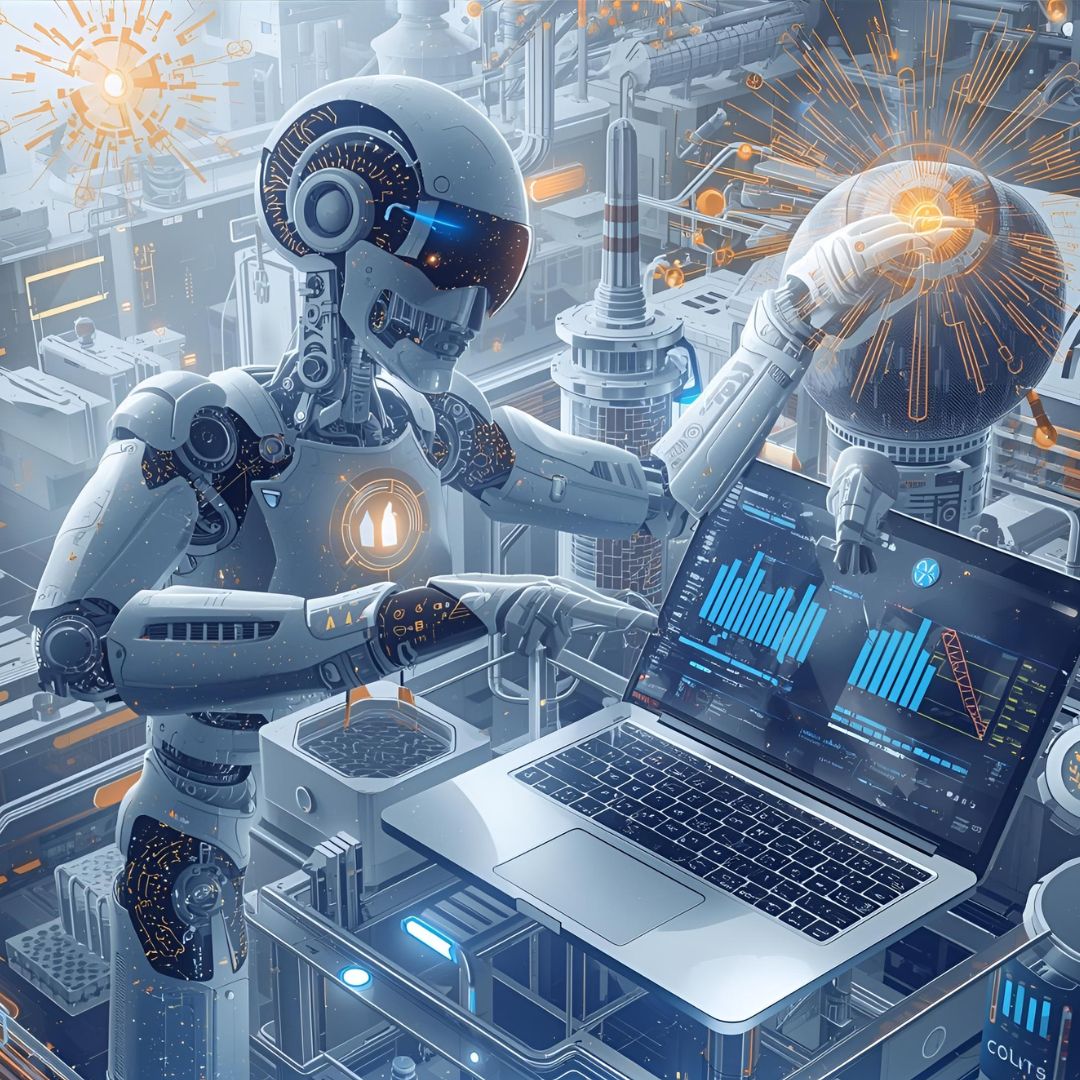Estimated reading time: 10 minutes
Key Takeaways
- The smart AI engine is a powerful system designed to automate processes, extract insights from data, and drive business growth.
- It integrates Machine Learning, Natural Language Processing, and Predictive Analytics to think, learn, and act.
- As an AI automation engine, it boosts efficiency, cuts costs, and frees human employees for more creative work.
- It offers transformative benefits across various industries, from customer service and marketing to operations and HR.
- Successful implementation requires clear business needs, quality data, ethical considerations, and robust change management.
Table of Contents
- Unleashing the Power of the Smart AI Engine: Your Blueprint for Business Automation
- Key Takeaways
- Defining the Smart AI Engine: Components and Capabilities
- The Engine of Efficiency: How a Smart AI Engine Powers Automation
- Transforming Operations: Core Benefits of an AI Engine for Business
- Practical Applications of a Business AI Engine Across Industries
- Key Implementation Considerations for Your Smart AI Engine
- Conclusion: Securing Your Future with a Smart AI Engine
- Frequently Asked Questions
In today’s fast-paced business world, companies are always looking for new ways to do things better, faster, and smarter. They want to be more efficient, come up with new ideas, and make choices using good information. This drive for progress has brought us to a new and exciting era, where Artificial Intelligence (AI) is changing everything.
At the heart of this big change is the smart AI engine. Think of it as a super-smart brain for businesses. A smart AI engine is a special computer system built to make processes happen all by themselves, find important facts from lots of data, and help businesses grow. It’s designed to automate tasks, dig deep into information, and help make big plans. This blog post will show you exactly how a smart AI engine works as an AI automation engine and how it can make a huge difference in how businesses operate every single day.
Defining the Smart AI Engine: Components and Capabilities
A smart AI engine, often called an AI engine for business or an AI automation engine, is much more than just a computer program. It’s a very advanced technological setup that can learn from huge amounts of information, change its understanding when new data comes in, and make choices on its own or with a little human help. It’s a sophisticated system that thinks, learns, and acts to help a company run better.
Let’s look at the main parts that make up this intelligent system and what each part does:
- Data Processing and Management: Imagine a giant library, but instead of books, it has all sorts of information. A smart AI engine can take in, clean up, store, and quickly understand massive amounts of data. This data can be structured, like numbers in spreadsheets or databases, or unstructured, like customer chats, posts on social media, signals from sensors, or big market trends. This engine pulls information from many different places. It’s very important that this data is good quality. If the data is messy, the AI won’t work as well. This ability to handle diverse data sources is key to how an AI engine for business gains its intelligence.
- Machine Learning (ML) Algorithms: These are the core brain of the smart AI engine. Think of machine learning as the way the system learns. These algorithms allow the AI to spot complex patterns, make predictions, and learn from its experiences without someone writing every single rule for it.
- Supervised learning is like learning with a teacher. The AI is given data with answers already known (like pictures labeled “cat” or “dog”), and it learns to predict answers for new, unlabeled data. This is good for things like forecasting sales or putting items into categories.
- Unsupervised learning is like exploring on its own. The AI finds hidden patterns and structures in data that isn’t labeled, helping it discover new groupings or insights.
- Reinforcement learning is like learning through trial and error. The AI makes decisions and gets rewarded for good ones and penalized for bad ones, helping it learn the best actions in changing situations. This is crucial for an AI automation engine that needs to adapt.
- Natural Language Processing (NLP) & Generation (NLG): These parts allow the smart AI engine to understand and use human language.
- NLP helps the engine read, interpret, and understand the meaning behind human language. This is used for things like understanding what customers say in their feedback, summarizing long documents, or following voice commands. It helps the engine grasp the meaning of words and sentences.
- NLG is the opposite; it helps the engine create human-like text or speech. This is used for making automatic reports, writing responses for chatbots, or creating personalized emails for customers.
- Computer Vision (CV): Where needed, this feature gives the smart AI engine “eyes.” It allows the engine to “see,” understand, and analyze visual information from pictures and videos. This is used for tasks like recognizing faces, finding specific objects for quality checks in factories, helping self-driving cars navigate, or keeping an eye on security cameras. It helps the AI process visual data just like it processes text or numbers.
- Predictive Analytics: This is where the engine uses what it has learned from old data and its ML models to guess what might happen in the future. For example, it can predict how much sales will be, if a customer might leave, or when a piece of equipment might break down. This helps businesses be ready for things before they happen, rather than just reacting to them. This proactive capability is a cornerstone of a powerful AI engine for business.
- Decision-Making Frameworks: These are the rules or advanced learning models that let the AI engine for business take actions or suggest smart choices. These choices are based on what the engine has analyzed, the patterns it has learned, and the goals it has been given. This ensures the AI’s actions are aligned with business objectives.
This foundational understanding is supported by leading industry insights from IBM, Gartner, McKinsey & Company, and Harvard Business Review.
The Engine of Efficiency: How a Smart AI Engine Powers Automation
The main job of a smart AI engine is to act as a very powerful AI automation engine. It takes the insights and analysis it gets from data and turns them into automatic actions and processes. This means that work gets done more smoothly, there’s much less need for people to do the same tasks over and over, and there are fewer mistakes. It really makes things flow better.
Let’s look at how this happens:
- Process Automation (with RPA Integration): The smart AI engine makes Robotic Process Automation (RPA) even better by adding intelligence to it. RPA is already good at doing simple, rule-based, and repeated tasks very quickly, like putting information into a system, processing invoices, making reports, sorting emails, or answering basic questions about human resources. With a smart AI engine, these tasks can be done even more efficiently and accurately than with just traditional RPA alone. The AI adds the “brain” to the “robot,” allowing it to handle variations and exceptions.
- Intelligent Automation: This is different from just simple RPA. An AI automation engine brings real intelligence to tasks that are more complex and can change a lot. These tasks need the system to understand, learn, and adapt, not just follow a fixed set of rules. For example, the engine can dynamically schedule things, create personalized content for people, find unusual things in money transactions (like potential fraud), or handle customer support by learning from every chat it has. It goes beyond simple repetition, using its learned intelligence to make decisions.
- Resource Optimization: A smart AI engine constantly looks at how well things are working and checks numbers related to operations. It identifies parts that aren’t working as well as they could be. Then, it suggests or automatically makes changes to use resources in the best way possible. This could mean scheduling workers more efficiently, deciding how much stock to keep, using less energy, making operations faster, or smoothing out how goods move through the supply chain. This means less waste and better use of everything a business has.
This pivotal role as a transformative AI automation engine is highlighted by research from Accenture, Deloitte, and Forrester Research.
Transforming Operations: Core Benefits of an AI Engine for Business
Using an AI engine for business brings many great advantages that help a company stay ahead of its rivals and grow steadily. It’s not just about doing things differently; it’s about doing them better and smarter.
Here are the main benefits you can expect when you implement a business AI engine:
- Increased Productivity and Output: When the business AI engine takes over tasks that are repeated and take a lot of time, human employees are free to do more important, creative, and valuable work. They can focus on solving tough problems, coming up with new ideas, or directly helping customers. This means the whole company gets more done, and employees feel happier and more involved because they are doing more meaningful work. It’s about leveraging human creativity and AI efficiency together.
- Significant Cost Savings: Automation helps companies save a lot of money. It reduces the costs linked to people doing manual tasks. It also cuts down on human mistakes, which can otherwise lead to having to redo work, paying fines, or losing money. By optimizing how resources are used, like managing inventory better or cutting down on wasted energy, a business AI engine leads to big savings in how the company operates. This financial benefit is a strong reason for adoption.
- Enhanced Data-Driven Insights and Decision-Making: The AI engine for business can process and analyze huge amounts of information at speeds and scales that no human can match. This amazing ability helps it find small patterns, hidden connections, and powerful predictions that people might miss. For instance, it can spot market trends, understand how customers behave, or find bottlenecks in operations. This means businesses can make faster, more accurate, and smarter choices based on real facts, not just guesses.
- Improved Scalability and Agility: When a company uses a business AI engine, it can grow its operations up or down more easily and efficiently without needing to hire a lot more people. AI systems can handle much more work, quickly adjust to changes in what the market needs, and help the company expand fast into new markets or offer new products. This makes the business much more flexible and able to react to opportunities or challenges.
- Enhanced Customer Experience (CX): A business AI engine makes customer service much better. It can personalize experiences, like suggesting products exactly right for you. It can provide faster service, like instant help from a chatbot. It can also solve problems before they even happen, like telling customers about potential equipment issues before they occur. All of this leads to happier customers, more loyal customers, and more customers staying with the business longer.
These transformative benefits are widely recognized by industry leaders such as PwC, Capgemini, and Forbes.
Practical Applications of a Business AI Engine Across Industries
A business AI engine is incredibly versatile. It works wonderfully in many different areas of a company and in various industries, showing how useful and impactful it can be in the real world. This intelligent system truly empowers businesses to rethink traditional processes.
Let’s look at some clear examples of how an AI engine for business is used:
- Customer Service:
- Automated Chatbots and Virtual Assistants: These intelligent tools can answer common customer questions instantly, provide support 24 hours a day, 7 days a week, sort out tricky issues, and send them to a human agent with all the important details already gathered. This means customers get help right away. https://maxsimai.com/ai-smart-websites-by-tapouts/
- Sentiment Analysis: The business AI engine watches what customers say across different places, like social media, review websites, or phone calls. It figures out if customers are happy or unhappy, finds out what problems they are having, and helps the company reach out to them proactively.
- Personalized Recommendations: Based on what a customer has done before, what they like, and their past interactions, the AI engine for business can suggest specific products, services, or helpful articles. This makes the experience much more personal and engaging for the customer.
- Marketing & Sales:
- Lead Scoring and Qualification: The AI system identifies and ranks potential customers who are most likely to buy. It does this by looking at past data, how much they’ve engaged with the company, and information about them. This helps the sales team work more efficiently and close more deals. https://maxsimai.com/ai-crm-software-sales-potential/
- Targeted Campaigns: The business AI engine customizes marketing messages, special offers, and content for specific groups of customers or even for individual people. This makes marketing campaigns much more effective because the messages truly resonate.
- Predictive Analytics for Customer Behavior: The engine forecasts what customers are likely to buy, spots customers who might leave, and calculates how much money a customer might bring to the business over their lifetime. This information helps create strategies to keep customers and find opportunities to sell them more.
- Operations & Logistics:
- Supply Chain Optimization: The AI engine for business predicts changes in demand, finds the best levels for inventory to reduce storage costs and avoid running out of stock, makes warehouse operations smoother, and finds the most efficient delivery routes. This saves money and speeds up delivery. https://maxsimai.com/maxsim-ai-powered-personal-ops-team/
- Predictive Maintenance: By watching how equipment performs using sensors, the AI can guess when machines might break down. It then schedules maintenance *before* a problem occurs, saving costly downtime and making machines last longer. This is a crucial application of a smart AI engine in manufacturing.
- Quality Control: Automated visual checks of products on assembly lines using computer vision help spot defects quickly and consistently. This ensures products are of higher quality and reduces waste from faulty items.
- Finance & HR:
- Fraud Detection: The business AI engine analyzes money transactions in real-time to find anything unusual or patterns that suggest fraud. This protects the company’s money and makes sure it follows all rules.
- Automated Reporting & Compliance: The engine automatically creates financial reports, audit trails (records of all transactions), compliance documents (to meet rules), and performance dashboards. This greatly reduces manual work, makes sure information is accurate, and helps the company follow all regulations.
- Talent Acquisition & Management: The AI engine for business can automate the screening of resumes, find the best-fit job candidates by matching their skills, personalize the onboarding process for new employees, and analyze how employees feel about their work for better retention and engagement.
- Employee Support: AI-powered HR chatbots can answer common employee questions about benefits, company policies, or leave requests, and they can automate the administration of employee benefits. This frees up HR staff for more complex tasks.
These diverse applications demonstrate the versatility of an AI engine for business, as documented by insights from Deloitte, McKinsey & Company, Accenture, and TechCrunch.
Key Implementation Considerations for Your Smart AI Engine
Putting a smart AI engine to work successfully and getting the most out of it isn’t just about getting the technology. It needs careful planning and smart actions. A thoughtful approach ensures that your AI engine for business delivers real value.
Here are some very important things to think about for businesses looking to use an AI engine for business:
- Identify Specific Business Needs and High-Value Use Cases: Don’t just get AI because it’s new. First, clearly identify your company’s biggest problems, where things get stuck, or where you see big opportunities. Choose areas where AI can make a clear difference and bring a good return on your investment (ROI). Make sure the smart AI engine solves a real problem for your business.
- Data Readiness and Quality: This is super important. The AI models are only as good as the information they learn from. You need clean, relevant, enough, and well-managed data. Remember the saying: “Garbage in, garbage out.” If your data is messy or wrong, your AI will give you messy or wrong answers. Think about how you will collect data, clean it up, and set up rules for managing it properly. This foundational step is critical for any effective AI engine for business.
- Start with Pilot Projects and Iterate: It’s a good idea to begin with smaller, easier-to-manage test projects. This helps you try out the technology, gather first results, show how valuable it is, and improve your approach before you use it across the whole company. It’s best to develop and launch the AI in small steps, learning and improving as you go. This agile approach minimizes risk and maximizes learning for your AI automation engine.
- Ethical AI, Bias, and Governance: This is a crucial topic. You must think about and fix any unfairness or biases that might accidentally get built into the AI’s algorithms, especially in sensitive areas like hiring or lending money. Make sure you can explain how the AI makes its decisions (transparency). Set up clear rules for how the AI will be used and managed, and make sure you follow new rules about AI, like privacy laws or ethical guidelines. This ensures responsible deployment of your smart AI engine.
- Choosing the Right Technology Partners and Solutions: Carefully pick companies and solutions that fit your specific business needs. Look for those that offer strong technical support, have a good history of success, and can easily connect with your current computer systems. A reliable partner is key to the long-term success of your AI engine for business.
- Change Management and Workforce Preparation: It’s vital to get your employees ready to work alongside AI, not to replace them. This means giving them the right training (to learn new skills), explaining what to expect, dealing with any worries they might have, and building a company culture that welcomes new ideas. This helps make sure the AI is used smoothly and successfully throughout your organization.
Strategic planning for a smart AI engine deployment is crucial, with guidance from Gartner, IEEE, and the World Economic Forum.
Conclusion: Securing Your Future with a Smart AI Engine
The smart AI engine is no longer just something from science fiction. It is a vital tool for businesses that want to succeed in today’s world, where there is a lot of competition and tons of data. It’s a strategic necessity for forward-thinking enterprises.
By working as a powerful AI automation engine, it opens up new levels of efficiency, helps create new ideas, provides deeper insights into your business, and allows for growth that can be scaled up easily. Embracing this advanced technology, this intelligent AI engine for business, is essential for getting ahead and staying there. It helps shape a more productive, intelligent, and strong future for companies that wisely choose to leverage a business AI engine. The future of business is intelligent, automated, and ready for you to lead.
Frequently Asked Questions
- What is a smart AI engine?
A smart AI engine is an advanced computer system designed to automate processes, extract insights from vast amounts of data, and make intelligent decisions. It combines technologies like machine learning, natural language processing, and predictive analytics to help businesses operate more efficiently and strategically.
- How does a smart AI engine differ from traditional automation?
While traditional automation (like RPA) excels at repetitive, rule-based tasks, a smart AI engine provides intelligent automation. This means it can understand context, learn from data, adapt to changing conditions, and make decisions on its own for more complex and dynamic processes, going beyond simple predefined rules.
- What are the main benefits of using an AI engine for business?
Key benefits include increased productivity, significant cost savings through optimized resource use and reduced errors, enhanced data-driven decision-making, improved scalability and agility for business growth, and a superior customer experience through personalization and faster service.
- Is a smart AI engine suitable for small businesses?
Absolutely. While often associated with large enterprises, the modular nature of AI solutions means small businesses can adopt smart AI engines for specific high-value use cases, such as automated customer support, lead qualification, or inventory management, scaling up as needed. The benefits of efficiency and insight are valuable to businesses of all sizes.
- What is the most crucial factor for successful AI engine implementation?
Data quality and readiness are paramount. An AI engine’s performance is directly tied to the quality, relevance, and volume of data it processes. Without clean, well-managed data, the AI’s insights and automations will be flawed. Additionally, clear identification of business needs and careful change management are critical for adoption and success.





